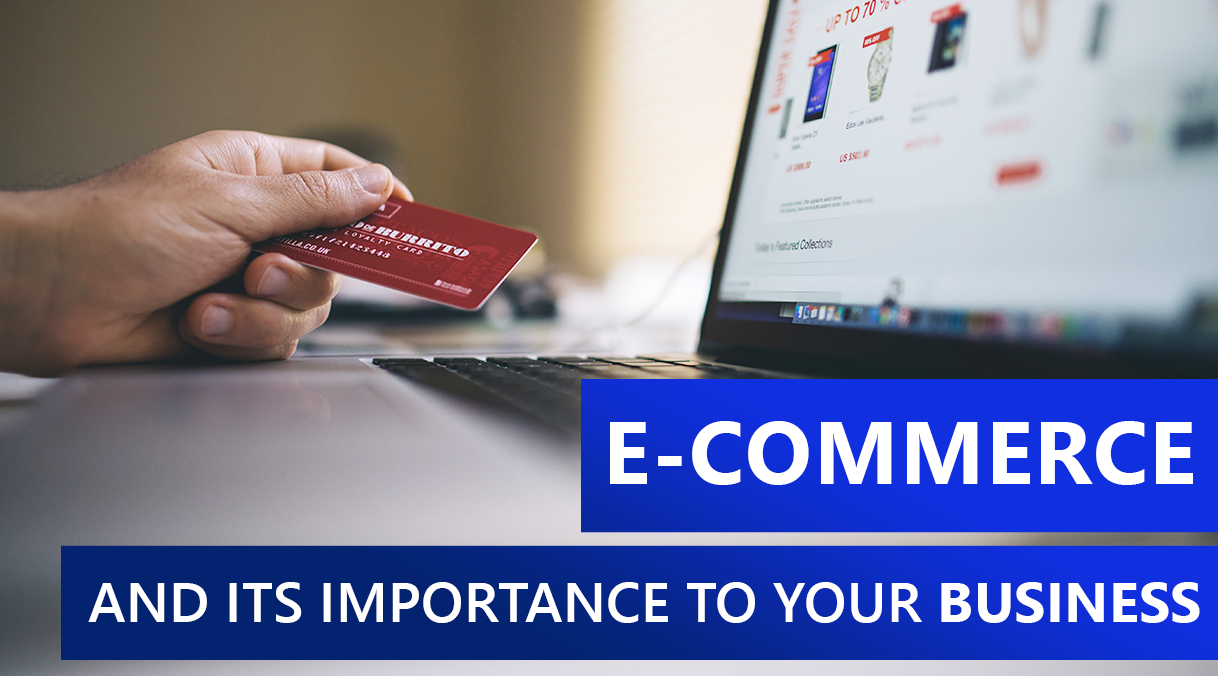E-commerce and Its Importance to Your Business
by Je Yaranon on June 2020

The internet’s first born
Electronic commerce or e-commerce refers to the buying and selling of goods through the internet. It’s been part of the online world since the mid-1990s and was among the first wave of success from the internet’s massive boom late in that decade.
Amazon.com and eBay.com debuted within a 10-month period (July 1994 and September 1995, respectively) and became headliners for the industry’s rise. The fresh, revolutionary online shopping experience it brought pushed customers into the website, all hooked by searching and purchasing sought-after products through their fingertips.
The craze attracted more sellers to ride the bandwagon and set-up shop in the sites. As the internet and technology progressed, e-commerce was again carried in the wave, thus evolving into the giant that it is today. The two forefathers gave birth to other e-commerce websites as well, and businesses everywhere made sure their websites have a specific section for online shoppers.
Online shops aren’t exclusive for websites too. With a huge percentage of the population owning smartphones and using it for internet browsing, e-commerce mobile apps consistently multiplied to have a wider reach and more constant visibility.
It’s a business necessity
E-commerce is such a growing outlet that the influence is at a point where it’s a business necessity. While it is still ultimately unable to overtake brick-and-mortar stores, having an online presence is bringing in a variety of sales and marketing additives that you really can’t get anywhere. Unlike offline-based promotions, where there’s TV, print, and other various ways, being big online can only be done by… well, being big online.
There are other key aspects why it’s a necessity. Here are some:
Geographical reach - Although this depends on your willingness to ship a product across the country, it will enable you to attract and accommodate as many buyers as possible, which, one would assume, is a top priority.
Wide Accessibility - Customers rarely have time to visit stores as plenty of factors come to play – work, constant heavy traffic, etc. It’s a tough battle but businesses would be able to combat that by extending accessibility into an e-commerce platform. It basically opens the shop 24/7 to everyone in the world.
Detailed Analytics - The analytics will provide telling numbers. It will allow you to see data that lays out details about your products and customers. This includes purchases, trending products, mobile and desktop views, visitors’ time spent on the website, and demographic, among others.
Digitalized Tracking - Most e-commerce solutions offer a specially built portal or back-office, an exclusive, online platform that helps you manage and monitor your store’s real-time sales data.
E-commerce is here to stay and continue its surge, so it’s something that businesses should heavily consider. The demand it has and the attention it can generate makes it an investment with an undeniable upside. If you’re planning to extend your business online, contact us now. We offer safe and reliable online payment solutions with free back-office and many other e-commerce essentials.
As VeritasPay continues to provide high-quality payment solutions and promote cashless transactions, the company is also dedicated in bringing in fresh and informative content. We’ll be continuing to share new articles about our products, services, and varying subjects within the industry as we move forward.
As VeritasPay continues to provide high-quality payment solutions and promote cashless transactions, the company is also dedicated in bringing in fresh and informative content. We’ll be continuing to share new articles about our products, services, and varying subjects within the industry as we move forward.
Contact us here to know more.
Related Articles

